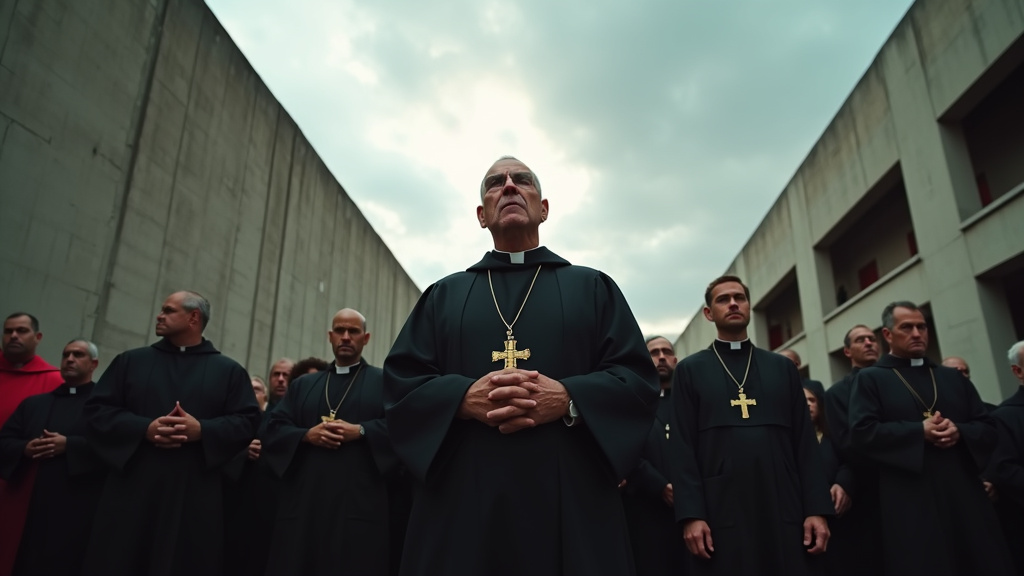The sacred space of the pulpit, traditionally revered as a sanctuary for spiritual introspection, moral guidance, and community solace, is facing an increasingly acute challenge: its burgeoning entanglement with the often-contentious realm of partisan politics. This growing and significant blurring of lines, observed across the nation, recently prompted a pointed and thought-provoking commentary from the Chicago Tribune Editorial Board. In a meticulously crafted opinion piece, the Board scrutinized the evolving and often contentious boundaries between religious institutions and political allegiances, questioning the appropriate roles for houses of worship in the modern political landscape. Their immediate concern, which served as a catalyst for the broader discussion, centered on the notable appearance of Texas state Representative Barbara Gervin-Hawkins speaking at a Chicago church. This particular event, rather than being an isolated incident, crystallized a debate over whether a spiritual sanctuary can genuinely uphold its divine mission while simultaneously serving as a platform for overt partisan politics, particularly on issues that deeply divide the body politic.
The Sanctuary and Partisan Strife
At the very core of the Chicago Tribune Editorial Board’s incisive critique lies a foundational question for contemporary society: What is the true and proper role of a religious institution when confronted with the insistent demands of partisan allegiance? The Board’s opinion piece directly challenged the appropriateness of a sacred space—a place consecrated for worship and spiritual communion—becoming a virtual platform for explicit political campaigning or strategizing. This concern was particularly sharpened when considering contentious issues such as gerrymandering. This intricate practice, which involves the deliberate manipulation of electoral district boundaries to secure an unfair advantage for one political party or class over another, represents a quintessential example of raw partisan maneuvering. To witness such a politically charged and inherently divisive issue championed from a spiritual platform, the editorial argued, raises profound concerns about the potential erosion of the church’s impartial standing and its perceived neutrality in the eyes of the broader community. The commentary suggests that while individuals within the faith community are undeniably encouraged to engage actively in the democratic process and exercise their civic duties, the institution of the church itself risks compromising its unique spiritual authority and universal appeal by overtly aligning with specific political factions or electoral campaigns.
The Church’s True Calling vs. Political Maneuvering
The editorial firmly and unequivocally asserts that while churches undoubtedly possess a vital and historically indispensable role in society, particularly in their capacity to speak timeless biblical truths and advocate relentlessly for civil rights, this sacred mandate does not, and should not, extend to serving as an operational extension of political parties. Throughout history, faith leaders have stood at the forefront of social justice movements, pivotal in challenging oppressive systems and championing human dignity, equality, and compassion. Their moral authority, however, has traditionally been derived from a perceived independence from the transient machinations of temporal power and partisan agendas. The opinion piece powerfully underscores that religious institutions should, above all else, remain an inviolable safe haven from naked partisanship. This imperative means providing a genuinely inclusive space where congregants of widely diverse political leanings, socio-economic backgrounds, and personal beliefs can gather freely for worship, spiritual growth, and genuine community engagement, all without feeling alienated, pressured, or coerced by overt political endorsements or dictates emanating from the pulpit. The sanctuary, in this essential view, must unequivocally be a place of unity and shared faith, fostering spiritual communion rather than exacerbating division along stark political lines. Its enduring strength lies in its ability to transcend the temporal.
IRS Signals and the Slippery Slope
Adding yet another complex and potentially problematic layer to this evolving landscape is the recent and significant messaging from the Internal Revenue Service (IRS). The editorial specifically references the IRS signaling a shift in its stance, indicating that churches may now engage in more overt political speech and activities without necessarily incurring the risk of losing their highly coveted tax-exempt status. This development, while potentially viewed by some as a necessary affirmation of religious free speech and expression, introduces a significant and perhaps perilous dilemma for religious organizations. If houses of worship are granted broader latitude to engage in directly partisan activities, it could inadvertently, yet inexorably, encourage a deeper and more pervasive entanglement with political campaigns, further blurring the critical lines that the editorial argues are absolutely vital to maintain for the integrity of both faith and politics. The overriding concern articulated by the Chicago Tribune Editorial Board is that such permissive signals could well pave a dangerous slippery slope, gradually transforming cherished spaces of spiritual communion into direct battlegrounds for political contests. This transformation, they contend, would inevitably compromise the essential spiritual mission of these institutions and potentially alienate vast segments of their congregations who may not share the dominant political views being espoused.
Drawing the Line: God’s Blueprint vs. Man’s Maps
In its potent, crystallizing conclusion, the opinion piece delivers a clear, unequivocal, and profoundly resonant message that echoes beyond the immediate political skirmishes: God does not write electoral maps. This powerful, almost metaphorical declaration encapsulates the core argument that divine will, eternal spiritual principles, and universal moral tenets are fundamentally distinct from—and indeed, often in stark contrast to—the frequently self-serving, manipulative, and deeply divisive process of political cartography. The act of gerrymandering, meticulously designed to secure partisan advantage and undermine true democratic representation, stands in stark opposition to the universal and unifying messages often espoused by genuine religious teachings. The Chicago Tribune Editorial Board’s insightful commentary serves as a poignant and timely reminder that the sacred, transcendent mission of faith institutions inherently surpasses the transient victories and ephemeral defeats of electoral cycles and political power plays. It urges both sides of the political spectrum, and indeed all citizens and stakeholders, to engage in a moment of critical self-reflection and introspection. The editorial firmly emphasizes that the enduring solution to pervasive partisan divisions and manipulative political practices lies not in attempting to harness or co-opt religious authority for temporal, self-serving gains, but rather in each side looking honestly and critically to themselves. It is through upholding principles of fairness, integrity, genuine public service, and a commitment to democratic ideals that progress can truly be achieved. The sanctity and spiritual purity of religious spaces, the editorial forcefully asserts, must be preserved at all costs, thereby allowing them to remain steadfastly true to their divine calling, distinct from the ever-shifting and often murky sands of human political ambition.















